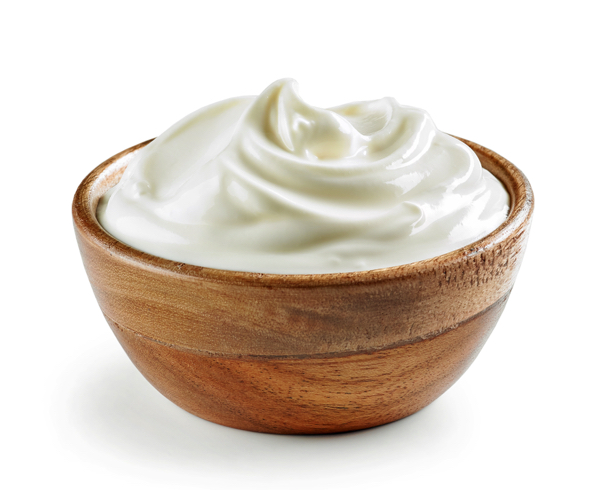Your 40’s is the most critical time to incorporate dementia-prevention habits
08/17/2025 / By Lance D Johnson

If you’re in your 40s, you’re probably finally settling into the rhythm of adulthood after decades of career climbs, parenting marathons, or the quiet chaos of building a life. The stormy seas of your 20s and 30s have calmed, and yet, something feels… off.
At this stage of life, words slip through your fingers like sand. Names vanish mid-sentence. The mental clarity you once took for granted now flickers like a dimming light. You chalk it up to stress, aging, or just “one of those things”—but what if it’s not? What if your brain, that magnificent command center, is sounding an alarm you can’t afford to ignore?
For women, the 40s aren’t just another decade—they’re a crossroads where biology, lifestyle, and time collide. Perimenopause, that stealthy precursor to menopause, doesn’t just bring hot flashes and mood swings; it quietly reshapes the brain, stripping away hormonal protections that once shielded cognitive function. Meanwhile, early-onset dementia cases are surging, with diagnoses in 30- to 54-year-olds skyrocketing by nearly 400% in just four years. The message is clear: Your 40s are the last best chance to fortify your brain against the storms ahead. The question is, will you listen?
Key points:
- The estrogen exodus: Perimenopause triggers a dramatic drop in estrogen, a hormone that acts like a neural bodyguard, defending against Alzheimer’s-linked plaques and fueling brain energy. When it plummets, cognitive vulnerability spikes.
- The dementia time bomb: Early-onset dementia is rising fast, with diagnoses in younger adults climbing at an alarming rate—yet most women don’t realize their 40s are the critical window to intervene.
- The five non-negotiables: From “neuro-nutrition” to purpose-driven hobbies, small, strategic habits can rewire your brain’s resilience. Think of it as building a cognitive fortress, brick by brain-boosting brick.
- The forgotten superfoods: Beyond salmon and blueberries, ancient adaptogens like lion’s mane mushroom and brahmi may hold the key to sharpening memory and staving off decline.
When your brain’s “superpower” fades: The estrogen-brain connection
Dr. Lisa Mosconi, a neuroscientist and the leading voice on women’s brain health, doesn’t mince words: Estrogen isn’t just about fertility. It’s the brain’s invisible ally, a hormone that “has superpowers” for cognitive function. For decades, it revs up neuronal energy, helping brain cells gobble glucose and fend off the sticky amyloid plaques tied to Alzheimer’s. But in perimenopause, that shield cracks. “Women lose the superpower around menopause,” Mosconi warns. “And the brain is left a little more vulnerable.”
This isn’t hyperbole. Studies show that women’s risk of Alzheimer’s is nearly twice that of men, a gap that widens post-menopause. The reason? Estrogen doesn’t just fade—it plummets, taking with it the brain’s ability to regulate mood, memory, and mental clarity. The result is “hormonal brain fog,” a frustrating haze where keys go missing, conversations blur, and confidence wavers. But here’s the kicker: This isn’t just about forgetting where you parked. It’s about the long game. Low estrogen levels are linked to shrinking hippocampal volume (the brain’s memory hub) and faster cognitive decline. Ignore it, and you’re not just misplacing your phone—you’re gambling with your future self.
Yet most women enter perimenopause blind to the stakes. “We tend to think of testosterone and estrogens as just about reproduction,” Mosconi says. “But these hormones are architects of brain health.” The solution? Treat your 40s like a neural renovation project. Start by auditing your lifestyle: Are you feeding your brain the right fuels? Are you moving enough to pump oxygen-rich blood to your prefrontal cortex? And—crucially—are you challenging your mind in ways that force it to adapt, not just coast?
Special foods and herbs that prevent dementia
If your 40s are the brain’s last stand against decay, think of these habits as your arsenal. They’re not about adding more to your plate; they’re about re-calibrating what’s already there. Eat like your brain’s life depends on it (because it does). Swap your morning coffee for matcha (packed with L-theanine for calm focus) or a golden latte with turmeric (a potent anti-inflammatory). The Mediterranean diet gets all the glory for preventing cognitive decline, but true “neuro-nutrition” goes deeper.
Your brain could benefit further from:
- Omega-3s: Wild-caught salmon, sardines, and flaxseeds to reduce inflammation.
- Polyphenol powerhouses: Dark chocolate (70%+ cocoa), green tea, and berries to combat oxidative stress.
- Lion’s mane mushroom: Stimulates nerve growth factor (NGF), a protein that repairs neurons.
- Brahmi (Bacopa monnieri): An Ayurvedic adaptogen shown to improve memory retention.
- Rosemary: Contains carnosic acid, which protects against neurodegeneration.
- Ginkgo biloba: Boosts cerebral blood flow and may slow cognitive decline.
- Catuaba bark: A Brazilian herb linked to enhanced focus and neural protection.
Movement is medicine:
- Move like your cognitive life depends on it (because it does). Exercise isn’t just for your waistline—it’s a brain fertilizer.
- Aerobic activity (even brisk walking) increases BDNF (brain-derived neurotrophic factor), a protein that acts like Miracle-Gro for neurons.
- Strength training, meanwhile, enhances executive function. The sweet spot? 150 minutes of moderate activity weekly, plus two days of resistance work.
- Yoga counts double: It combines movement with stress reduction, a one-two punch against cortisol (the memory-melting hormone).
More brain hacks:
Supplement smartly—but don’t get scammed. Not all brain boosters are created equal. Look for clinically studied ingredients:
- Citicoline: A neuronutrient that repairs cell membranes and improves attention.
- Kanna (Sceletium tortuosum): A South African herb that elevates mood and sharpens focus.
- Magnesium L-threonate: The only form proven to cross the blood-brain barrier, enhancing synaptic plasticity.
Dean Sherzai, co-director of the Alzheimer’s Prevention Program at Loma Linda University, has a mantra: “Don’t retire—rewire.” The brain thrives on novelty and purpose. That could mean:
- Learning a language.
- Joining a book club.
- Taking up salsa dancing.
- Learning a new sport, engaging your brain, and enhancing social connections.
- Avoid useless stress. Chronic stress shrinks the hippocampus.
- Meditation, forest bathing, or even 10 minutes of deep breathing can lower cortisol and improve memory.
The choices you make now will echo in your 70s, 80s, and beyond. So stock your pantry with lion’s mane and brahmi. Dance like no one’s watching. And when brain fog rolls in, remember: It’s not you. It’s your biology—and biology can be rewritten.
Sources include:
Submit a correction >>
Tagged Under:
brahmi, Citicoline, cognitive decline, executive function exercises, ginkgo biloba, lion's mane, Rosemary
This article may contain statements that reflect the opinion of the author




















